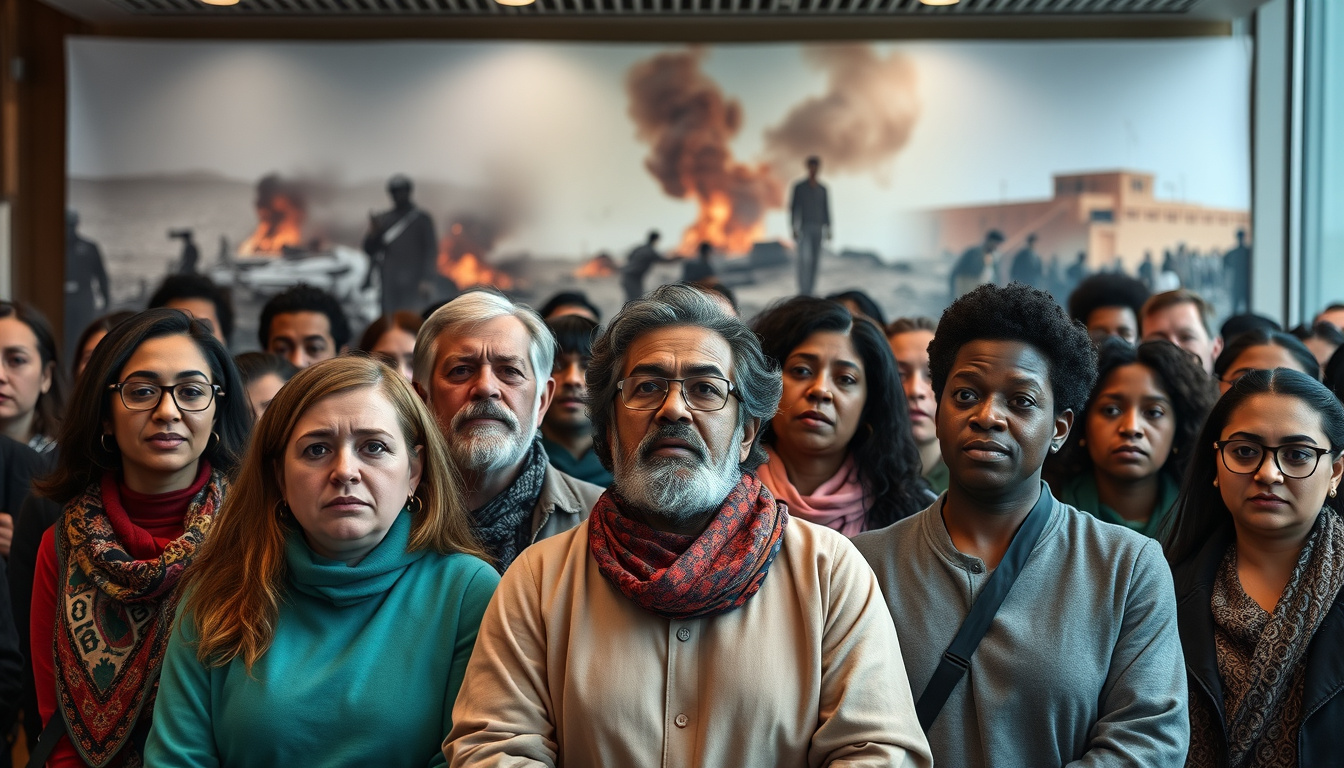The ongoing conflict in Gaza has reached a critical point, prompting a significant declaration from the International Association of Genocide Scholars (IAGS).
On August 31, IAGS adopted a resolution asserting that Israel’s actions toward Palestinians in Gaza constitute genocide.
This bold statement underlines the urgent need for international intervention to address the escalating humanitarian crisis.
Through legal definitions of genocide and disturbing statistics highlighting the dire conditions in Gaza, this article aims to shed light on the complexities surrounding this tragic situation, alongside expert analyses that call for immediate action.

Key Takeaways
- The International Association of Genocide Scholars declared Israel’s actions in Gaza as genocide, emphasizing the need for urgent international intervention.
- The declaration challenges existing diplomatic efforts, highlighting the use of tactics like starvation and displacement as measures of ethnic targeting.
- Current humanitarian statistics underscore the severity of the situation in Gaza, with thousands dead and a famine declared by the UN.
Legal Definitions of Genocide and Implications for International Law
The concept of genocide is one of the most serious allegations in international law and has far-reaching implications for justice, accountability, and humanitarian interventions worldwide.
Defined by the Convention on the Prevention and Punishment of the Crime of Genocide, genocide encompasses acts committed with the intent to destroy, in whole or in part, a national, ethnic, racial, or religious group.
This includes killings, causing serious bodily or mental harm, and deliberately inflicting conditions calculated to bring about physical destruction.
The recent resolution by the International Association of Genocide Scholars (IAGS), which asserts that Israel’s actions against Palestinians in Gaza constitute genocide, emphasizes a critical examination of international law.
The resolution calls for immediate global intervention to stop atrocities that have led to staggering casualties, with reports of over 62,000 deaths and widespread destruction.
By highlighting tactics such as starvation and displacement as methods of ethnic targeting, IAGS’s position presses the international community to reassess diplomatic approaches and seek urgent humanitarian responses.
In tandem with reports of famine declared by the United Nations, the situation in Gaza underscores an escalating humanitarian crisis that challenges not only ethical norms but also legal frameworks meant to protect vulnerable populations.
As human rights organizations raise alarms regarding plans for Gaza’s future redevelopment amid these grave human rights violations, the conversation around genocide and its definitions within international law becomes more vital than ever.
Humanitarian Crisis in Gaza: Statistics and Responses
The humanitarian crisis in Gaza has reached alarming proportions, with statistics reflecting the devastating impact on the civilian population.
As conflict escalates, the Palestinian Health Ministry’s reports indicate that over 62,000 individuals have lost their lives, along with more than 156,000 injuries recorded since the renewal of hostilities.
The situation has deteriorated to the point where the United Nations has officially declared a famine in Gaza, exacerbated by acute food shortages, widespread malnutrition, and starvation-related deaths.
This crisis is made even more complex by geopolitical maneuvers and the troubling notion of Gaza’s redevelopment following displacement, raising significant ethical concerns.
With such dire statistics and humanitarian needs, the international community faces a moral imperative to intervene and assist in alleviating the suffering while addressing the legal implications of the actions taken in Gaza.
The ongoing violence and resultant humanitarian fallout necessitate urgent attention and concerted efforts from global leaders, aid organizations, and individuals alike to bring about meaningful change and support for affected populations.

